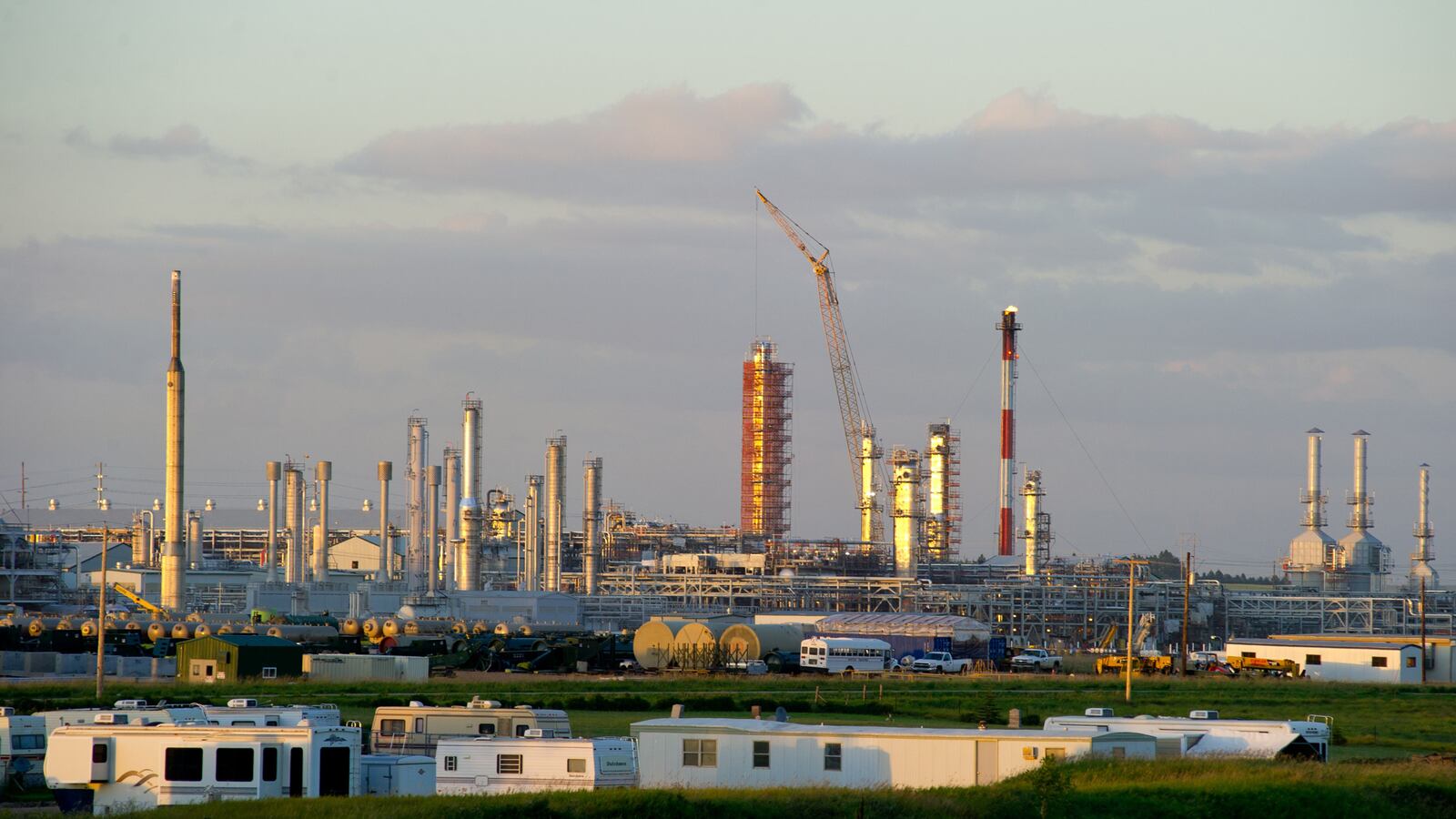Forget politics. Look to energy and medicine for hope in 2014.
Politics comes and goes—it’s as cyclical and mercurial as human nature itself. But technology is cumulative. So while every dumb political idea gets visited and revisited every few decades, the wheel, for example, is here to stay. And the same goes for all the other inventions that have made our lives so much better.
So in the spirit of not putting my faith in princes, here’s what I hope for next year.
1. Energy Independence
The United States is in the midst of an energy revolution. Natural gas is about to overtake coal as the single largest source of electrical power, domestic crude oil production will soon hit levels unmatched since 1970, and energy imports are falling fast. As for the environment, “the U.S. is already nearly halfway to the targets of the cap-and-trade bill that passed in the House but couldn’t get out of the Senate,” a development no one had predicted, Politico reports.
That is great news for the U.S. and Americans. It means potential jobs, growth, and opportunities. Unemployment in the oil patches is below the national average, and the annual salary of a recent petroleum engineering graduate can outstrip a year’s worth of costs at Harvard Law School.
American energy independence also would be welcomed by our armed forces—and by the families of our service personnel. As the country moves toward energy independence, there is less reason for bloody and costly Middle East entanglements in the name of oil or democracy. Let me illustrate.
After Iraq invaded Kuwait in 1990, then-Secretary of State James Baker argued that Saddam Hussein’s grip on oil “could strangle the global economic order, determining by fiat whether we all enter a recession, or even the darkness of a depression.” Looking back at the Iraq War during a 2008 panel discussion, Gen. John Abizaid (Ret.), the former CENTCOM commander who led American troops in Iraq between 2003 and 2007, acknowledged, “Of course it’s about oil, we can’t really deny that.”
For the record, more than 4,500 American troops died in the Iraq War, while more than 1 million U.S. soldiers were wounded in Iraq and Afghanistan. And as we ponder those gruesome numbers, throw in the Saudis—who simultaneously stoke Sunni fundamentalism, decry terror, and would have us serve as their proxies in Syria—and all of a sudden energy independence and a smaller U.S. footprint overseas are reasons to raise a glass at midnight December 31.
2. Medicine, Medical Research, and Cures
But my hopes are not just about energy. They’re also about medicine and cures, as opposed to health insurance. Sure, Democrats and Republicans will continue to fight over Obamacare, with the Democrats disingenuously denying that Obamacare did not gore middle- and working-class Americans, while the GOP clings to its dream of privatizing Medicare.
Yes, all that will make for great theater in the run-up to November’s congressional elections, and fortunately for the Republicans, health insurance’s implosion is happening on Obama’s watch. But I’m talking about medicine, medical research, and cures. As Jim Pinkerton, a former White House domestic policy adviser to Presidents Reagan and Bush 41, likes to say, “A cure is better than care. It’s cheaper to beat than to treat.”
Indeed, it’s already happening. Between 2000 and 2010, deaths from heart disease, stroke, and breast cancer all declined. From 1900 to 1950, average life expectancy at birth rose from 47.3 years to 68.2 years, and up to 78.7 years in 2010. An American who makes it to 75 years old now is projected on the average to live to 87.
Among African-Americans, the story is even more dramatic, with average life expectancy jumping from 33 years at birth in 1900 to more than 75 in 2010. Moreover, African-Americans who live to 75 are expected to live a decade longer. And just in case anyone forgot, medical advances have transformed AIDS from a death sentence to something more manageable. Medicine can realistically be expected to deliver on its promise, which is more than can be said of politicians.
Or take the Human Genome Project as another stellar example of what medical research can accomplish. Research funded by the Department of Energy, the National Institutes of Health (NIH), and overseas and domestic not-for-profits led to the mapping in 2003 of “genomes”—the stuff that makes up the human genetic blueprint. Since then, over the last decade, scientists have discovered more than 1,800 disease genes and have developed 2,000 genetic tests for human conditions, all of which spells H-O-P-E.
Just this month NIH announced that “researchers can now freely access the first batch of genome sequence data from the Alzheimer’s Disease Sequencing Project.” The true damage caused by Alzheimer’s cannot be understated, as Alzheimer’s and other forms of dementia now kill one of every three seniors.
Alzheimer’s also is threatening to blow the lid off of Medicare, as the disease is the sixth leading cause of death in the U.S. and the fifth leading cause of death among Americans 65 and older. Alzheimer’s treatment cost $200 billion in 2012 and is projected to rise to $1.2 trillion annually by midcentury. Finding a cure is thus a matter of national necessity.
3. Politics
Medicine’s potential is huge and should be embraced. It makes me feel hopeful. But politics is a different story.
With 2014 as a congressional election year, the acrid scrums of 2013 will give way to the combat of the campaign. That is good, insofar as voters who have been hurt or helped by Obamacare can make themselves heard. But beyond a possible change in the Senate’s lineup, the partisan divide that is merely an expression of America’s regional, cultural, and ethnic divisions is not set to disappear anytime soon.
So enter energy and medicine, which bring with them the promise of a better future, one in which politicians, thankfully, more often than not are denied the last word.






